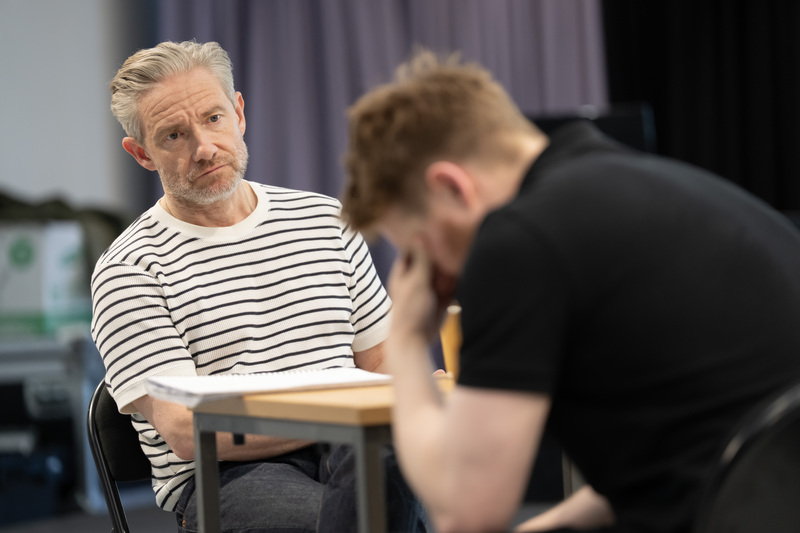For a play which leans heavily on the renowned Liverpudlian capacity to draw deadpan humour from social mores, Cuckoo covers some meaty topics — albeit in a typically chatty and throw-away manner. The style is unequivocally Carla-Lane-meets-Lily-Savage and manages to include everything from the destructiveness of excessive mobile phone use, the parlous state of public transport, international terrorism, violence against children, the cruelty of capitalism and on to the delights of plastic in the oceans and the imminent apocalypse. For all that, the deadpan delivery of wry observations results in some very funny moments, most especially in the first half as we are fed snippets about the women, their history and the quirky dynamic which exists between them.
Doreen (Sue Jenkins) is at home and enjoying a fish and chips supper with her two grown daughters Sarah (Jodie McNee) and Carmel (Michelle Butterly) and the latter’s seventeen year old daughter Megyn (Emma Harrison). Coupled with the job insecurity which Carmel feels in her Boots check-out role (from which she earns barely enough to keep a roof over their heads), is Megyn’s seeming unwillingness to contribute to the household, which is causing resentment and friction. Meanwhile, Sarah, a delusionally romantic primary school teacher is rushing things with her new dentist beau, but is horrified when she learns that her widowed mother has also started seeing a man who, in contrast to her late husband, treats her with consideration and shows interest in her opinions.
Wynne’s Birkenhead roots are writ large on his eighth collaboration with the Royal Court and the piece reflects both his political bent and love for writing female characters. When, after a mother daughter confrontation, Megyn goes upstairs and locks herself in her grandmother’s bedroom, battle lines are drawn and each has to decide whether to be supportive and understanding or vent their anger and impatience. Unfortunately, it’s at this point that the wheels come off slightly and the play founders. Megan’s month of self-imposed exile and her grandmother’s complicit doting feel a tad fabricated and we are never certain come the final scene whether Megyn is merely attention-seeking or profoundly disturbed by an unspoken event. All we can be certain of, is that throughout the period, her posting on social media is unrelenting and the cause of considerable concern. It’s through this theme that working-class familial dysfunction is explored, but without necessarily reaching a satisfactory or indeed, wholly satisfying conclusion.

 Directed by Vicky Featherstone and boasting a closely knit family of four Birkenhead women, Michael Wynne’s darkly funny new play CUCKOO has opened at the Royal Court and as a comedic social commentary, it touches on a quite dizzying array of subjects.
Directed by Vicky Featherstone and boasting a closely knit family of four Birkenhead women, Michael Wynne’s darkly funny new play CUCKOO has opened at the Royal Court and as a comedic social commentary, it touches on a quite dizzying array of subjects.


 Whilst the National Theatre’s exalted Olivier stage currently explores the mental pressures and bravado ever present in the world of football with Dear England, the Park Theatre’s considerably smaller and more intimate playing area tackles rugby with BONES, a new play by Lewis Aaron Wood which asks “When is it OK to not want to play?”
Whilst the National Theatre’s exalted Olivier stage currently explores the mental pressures and bravado ever present in the world of football with Dear England, the Park Theatre’s considerably smaller and more intimate playing area tackles rugby with BONES, a new play by Lewis Aaron Wood which asks “When is it OK to not want to play?”